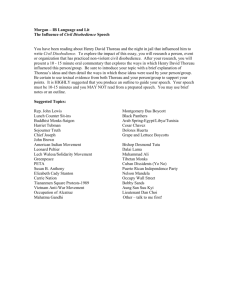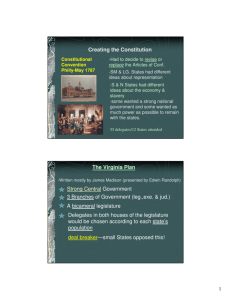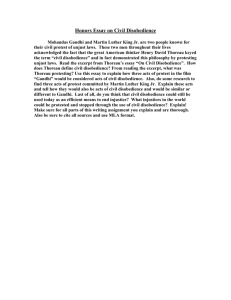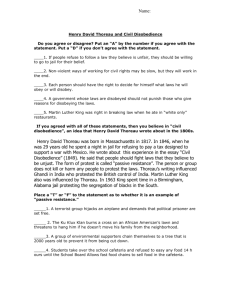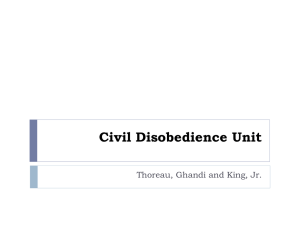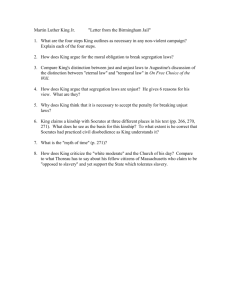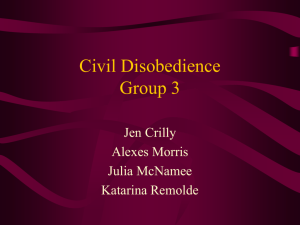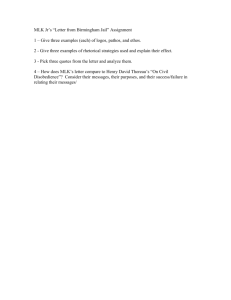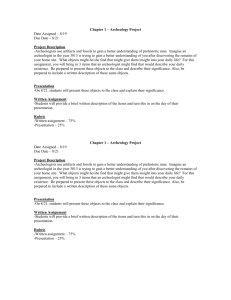Key Works of Literature Art Music
advertisement
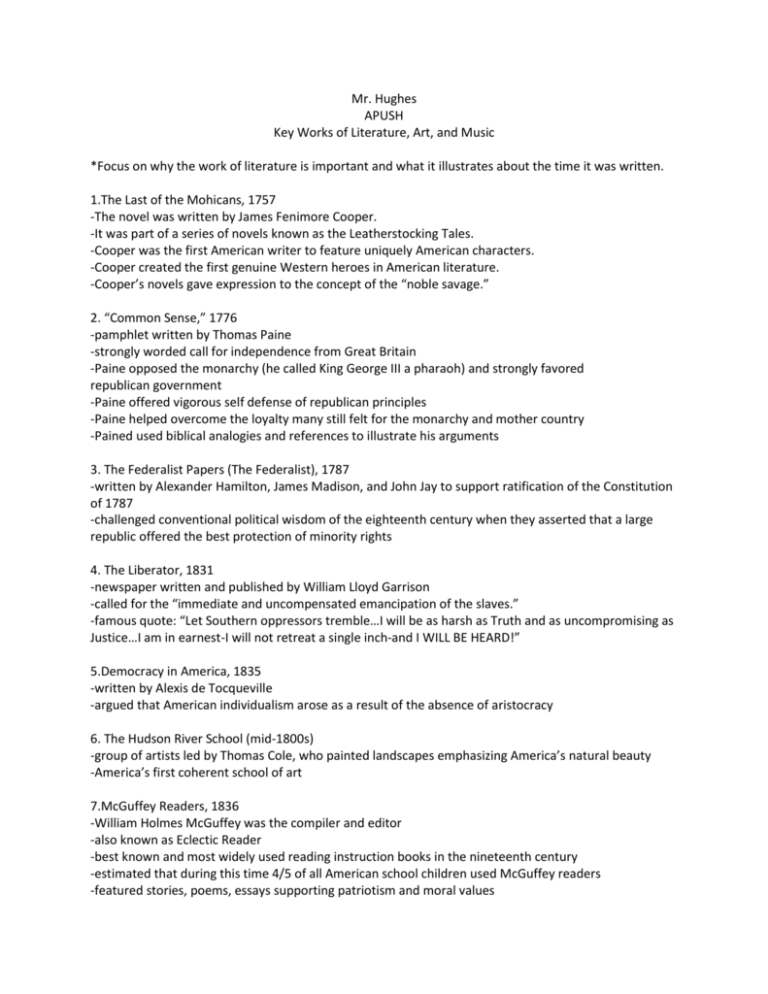
Mr. Hughes APUSH Key Works of Literature, Art, and Music *Focus on why the work of literature is important and what it illustrates about the time it was written. 1.The Last of the Mohicans, 1757 -The novel was written by James Fenimore Cooper. -It was part of a series of novels known as the Leatherstocking Tales. -Cooper was the first American writer to feature uniquely American characters. -Cooper created the first genuine Western heroes in American literature. -Cooper’s novels gave expression to the concept of the “noble savage.” 2. “Common Sense,” 1776 -pamphlet written by Thomas Paine -strongly worded call for independence from Great Britain -Paine opposed the monarchy (he called King George III a pharaoh) and strongly favored republican government -Paine offered vigorous self defense of republican principles -Paine helped overcome the loyalty many still felt for the monarchy and mother country -Pained used biblical analogies and references to illustrate his arguments 3. The Federalist Papers (The Federalist), 1787 -written by Alexander Hamilton, James Madison, and John Jay to support ratification of the Constitution of 1787 -challenged conventional political wisdom of the eighteenth century when they asserted that a large republic offered the best protection of minority rights 4. The Liberator, 1831 -newspaper written and published by William Lloyd Garrison -called for the “immediate and uncompensated emancipation of the slaves.” -famous quote: “Let Southern oppressors tremble…I will be as harsh as Truth and as uncompromising as Justice…I am in earnest-I will not retreat a single inch-and I WILL BE HEARD!” 5.Democracy in America, 1835 -written by Alexis de Tocqueville -argued that American individualism arose as a result of the absence of aristocracy 6. The Hudson River School (mid-1800s) -group of artists led by Thomas Cole, who painted landscapes emphasizing America’s natural beauty -America’s first coherent school of art 7.McGuffey Readers, 1836 -William Holmes McGuffey was the compiler and editor -also known as Eclectic Reader -best known and most widely used reading instruction books in the nineteenth century -estimated that during this time 4/5 of all American school children used McGuffey readers -featured stories, poems, essays supporting patriotism and moral values 8.”Civil Disobedience: On the Duty of Civil Disobedience,” 1849 -author of this essay was Henry David Thoreau -expressed opposition to the Mexican War -argued individuals have a moral responsibility to oppose unjust laws and unjust actions by governments -influenced Dr. King’s philosophy of nonviolent civil disobedience 9.The Scarlet Letter, 1850 -Nathaniel Hawthorne was the author -novel dealt with the legacy of Puritanism 10. Leaves of Grass, 1855 -Walt Whitman was the author -Whitman’s poems featured the Romantic movement’s revolt against reason and embrace of nature 11. Uncle Tom’s Cabin, 1852 -Harriet Beecher Stowe was the author -novel strengthened Northern opposition to slavery -second only to the Bible in sales 12. Walden, 1854 -written by Henry David Thoreau -novel supported transcendentalism – truth through inner reflection and exposure to nature -record of Thoreau’s thoughts concerning the value of a life of simplicity and contemplation 13. Horatio Alger Jr. Stories (1867 to 1899) -author was Horatio Alger Jr. -collection of 270 dime novels -featured rags-to-riches stories describing how down-and-out boys become rich and successful through hard work, honesty, and a little luck 14. A Century of Dishonor, 1881 -Helen Hunt Jackson was the author -aroused public awareness of the federal government’s long record of betraying and cheating Native Americans 15. The Influence of Sea Power upon History, 1890 -Captain Alfred Mahan was the author -argued that control of the sea was the key to world dominance -book was influential in promoting the growth of U.S. naval power during the late nineteenth century 16. How the Other Half Lives, 1890 -Jacob Riis was the author -Riis was a journalist and photographer working primarily in New York City -Riis’s book How the Other Half Lives provided poignant pictures that gave a human face to the poverty and despair experienced by immigrants living in New York City’s Lower East Side 17. “The Significance of the Frontier in American History,” 1893 -paper written by Frederick Jackson Turner -argued that the development of American individualism and democracy was shaped by the frontier experience -Turner’s “frontier thesis” focused on the importance of the absence of a feudal aristocracy-America did not have a hereditary landed nobility -famous excerpt: “From the beginning of the settlement of America, the frontier regions have exercised a steady influence toward democracy…American democracy is fundamentally the outcome of the experience of the American people in dealing with the West…” 18. The Wonderful Wizard of Oz, 1900 -L. Frank Baum was the author -originally written as a political commentary on free silver and the plight of American farmers 19. The Ashcan School of Art, early 1900s -group of eight American artists, led by John Sloan -Ashcan artists focused on depicting urban scenes such as crowded tenements and boisterous barrooms 20.The Jungle, 1906 -written by Upton Sinclair -novel exposed appalling conditions in the Chicago meatpacking industry -classic example of a muckraking novel -novel helped bring about passage of the Pure Food and Drug Act and the Meat Inspection Act of 1906 21. Pragmatism, 1907 -William James was the author -His concept of pragmatism held that truth was to be tested, above all, by the practical consequences of an idea, by action rather than theories -beliefs should be tested by experience-ultimate test of truth is experience, not logic -important to remember that William James and other pragmatists do not believe in the existence of absolute truth 22. Lost Generation of the 1920s -key writers included Sinclair Lewis and F. Scott Fitzgerald -called the Lost Generation because they were disillusioned with American society during the 1920s -criticized middle-class conformity and materialism Ex: Sinclair Lewis criticized middle-class life in novels such as Babbitt and Main Street 23. Harlem Renaissance, 1920s -Key writers included Langston Hughes, Zora Neale Hurston, Claude McKay, Josephine Baker, and James Weldon Johnson -created distinctive African American literature -writers expressed pride in their African American culture 24. Jazz -Black musicians such as Joseph (“Joe”) King Oliver, W.C. Handy, and “Jelly Roll” Morton helped create jazz -Jazz was especially popular among the youth because it symbolized a desire to break with tradition 25. The Grapes of Wrath, 1939 -written by John Steinbeck -described the light of “Okies” forced to leave Dust Bowl-stricken Oklahoma in a futile attempt to find work in California 26. The Organization Man, 1956 -W.H. Whyte was the author -criticizes the homogenous culture of the 1950s -criticizes American conformity and the belief that economic growth would solve all problems 27. On the Road, 1957 -written by Jack Kerouac -novel expressed the alienation and disillusionment of the Beat Generation of the 1950s -like other Beat generation writers, Kerouac rejected middle-class conformity and materialism 28. Rock and Roll, 1950s -key musicians included Little Richard, Chuck Berry, and Elvis Presley -rock and roll first emerged during the 1950s -inspired and strongly influenced by Black musical traditions, especially rhythm and blues 29. Silent Spring, 1962 -written by Rachel Carson -protested the contamination of the air, land, and water with chemical insecticides such as DDT -novel played a key role in sparking the environmental movement in the United States 30. The Other America, 1962 -Michael Harrington was the author -poignant and influential report on poverty in America -played an important role in awakening JFK’s interest in the poor and showed the way for LBJ’s War on Poverty 31. “Letter from Birmingham Jail,” 1963 -written by Dr. Martin Luther King Jr. -argued that citizens have “a moral responsibility to disobey unjust laws.” -Civil disobedience is thus a justified response to unjust laws
